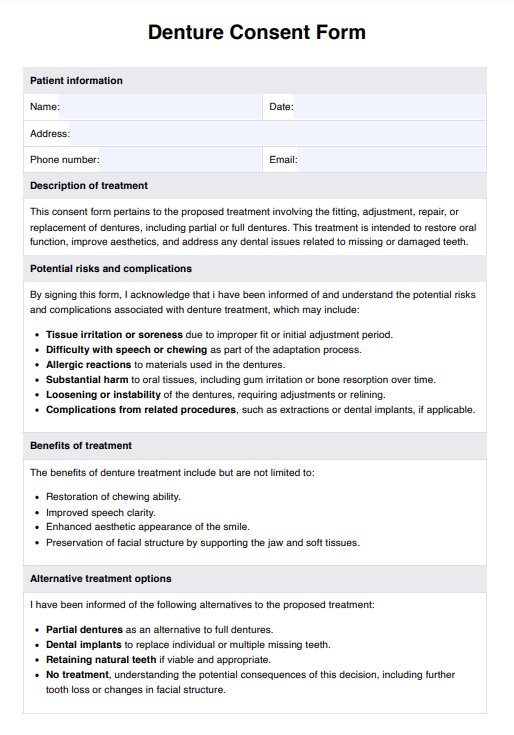While not always legally required, obtaining a signed consent form is considered best practice to ensure the patient is fully informed about the procedure, its risks, benefits, and alternatives. It also provides legal protection for the dental professional in case of disputes.

Denture Consent Form
Explore a Denture Consent Form and the advantages of utilizing the forms. Download a free PDF example for your convenience.
Denture Consent Form Template
Commonly asked questions
The description should be clear and comprehensive, highlighting the primary risks, such as substantial harm to oral tissues or bone, and potential complications associated with the proposed treatment, including dental implants or fitting a new denture. It should also outline viable alternatives, ensuring patients fully understand their options. This level of detail is essential to maintain both ethical standards and legal compliance.
Yes, digital consent forms are acceptable if they comply with relevant legal and professional standards, such as HIPAA, in the United States. Ensure the digital process allows for clear documentation of the patient's understanding and agreement.
EHR and practice management software
Get started for free
*No credit card required
Free
$0/usd
Unlimited clients
Telehealth
1GB of storage
Client portal text
Automated billing and online payments











